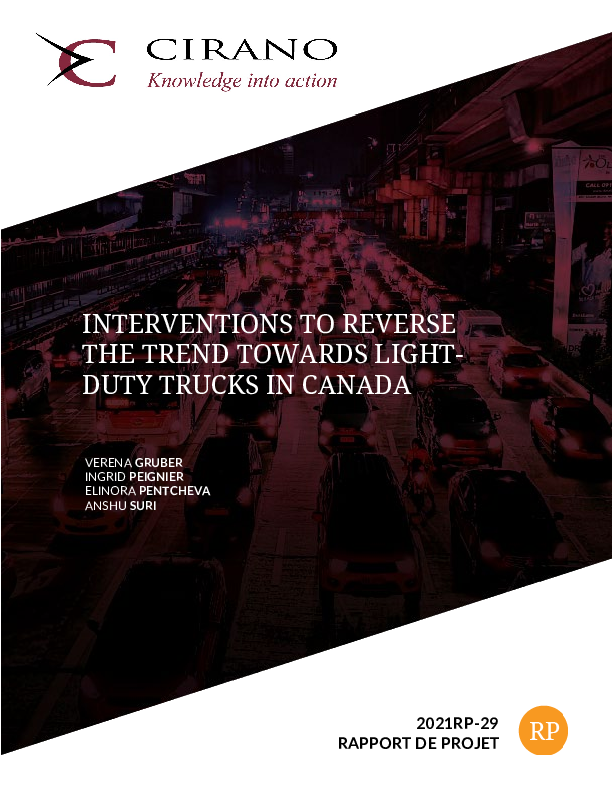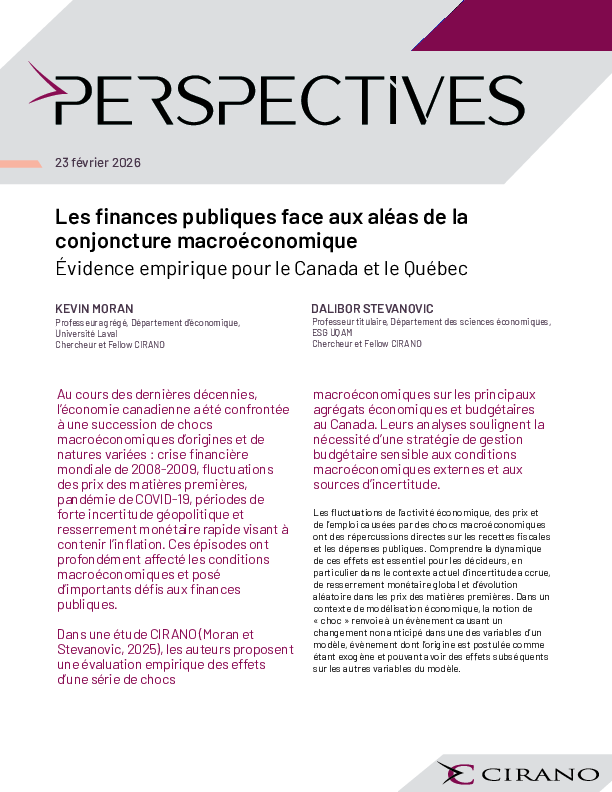Interventions to reverse the trend towards light-duty trucks in Canada
The primary objective of this report was to investigate the effectiveness of different messages to mitigate the liking and purchase of energy-intensive vehicles, particularly sport utility vehicles (SUVs).
It presents the results of four experimental studies on both topics relevant to policymakers (i.e., regulating price presentation and working on financial empowerment initiatives to increase citizens' numerical and financial literacy) and topics that can be leveraged in social marketing campaigns to help reverse the trend toward energy-intensive vehicles. Specifically, three experiments testing aspects of personal identity, social norms, and time orientation find the following:
• Creating negative perceptions of SUV drivers as people with below-average driving skills significantly reduces both appreciation of SUVs and intention to purchase an SUV, regardless of whether the individual already owns a gas-guzzling vehicle.
• Changing the social norm around SUVs: SUVs have become a social norm as they were the top selling vehicle in Canada in 2020, and the literature in the field clearly demonstrates the importance of social norms in influencing consumer decision-making. Our results show that these norms can also be used to counter the trend toward gas-guzzlers by emphasizing that compact cars are the normal vehicle to choose.
• Get the public to think about the legacy left to their children by purchasing a light truck using time-based cues: highlighting a future orientation decreases the liking and intention to purchase energy-intensive vehicles. The intervention is particularly effective for individuals who already recognize the environmental impact of personal transport.
• Building individual capacity to consider all vehicle costs: We find that while individuals are generally able to stay within their budgets, those with low levels of numerical and financial literacy, as well as those who are financially dissatisfied (regardless of their level of literacy), make many more choices that exceed their budgets. This experience underscores the importance of initiatives to improve financial literacy, as particularly vulnerable consumers appear to be attracted to SUV purchases.
The research documented in this second report builds directly on the results of the exploratory phase documented in the CIRANO 2021RP-06 project report which assessed the motivations, attitudes and contextual factors influencing vehicle choices among Canadians and empirically tests the effectiveness of different messages in addressing the trend towards fuel-inefficient vehicles in Canada.




